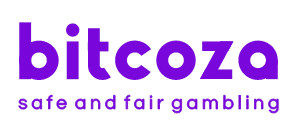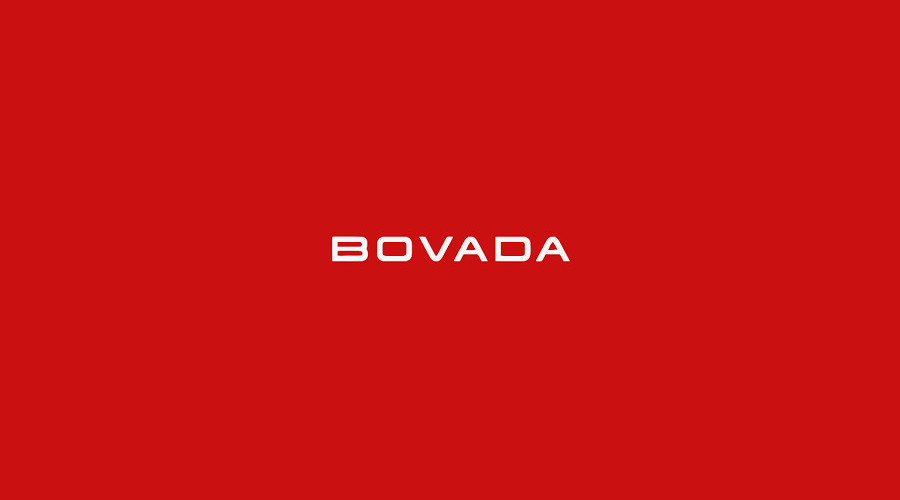Curacao’s casino licensing system, established in 1996, offers operators a balanced approach between accessibility and regulatory compliance. The jurisdiction combines reasonable costs, straightforward processes, and regulatory oversight, making it a preferred choice for online gaming operators.
Key Takeaways
- Operators must establish a physical office in Curacao and maintain at least one local server while registering with the Chamber of Commerce.
- Companies need to pay annual license fees of EUR 55,000 and demonstrate financial stability through detailed bank statements.
- A dedicated Compliance Officer must be appointed to oversee anti-money laundering processes and responsible gaming protocols.
- Technical infrastructure must include certified Random Number Generator systems and meet Gaming Laboratories International guidelines.
- Operators must submit extensive documentation including notarized passports, criminal records, and Articles of Association during application.

Understanding Curacao Gaming Jurisdiction
Three key regulatory bodies oversee Curacao’s gaming jurisdiction: the Gaming Control Board (GCB), the Ministry of Finance, and the Financial Intelligence Unit (FIU). These entities work together to guarantee thorough oversight of both land-based and online gaming operations within the jurisdiction.
The GCB, established in 1999, serves as the primary regulatory authority for gaming regulations in Curacao. Initially focused on land-based casinos and lotteries, the GCB expanded its scope in 2019 to include online gaming supervision. This expansion strengthened the jurisdiction’s commitment to maintaining robust online compliance standards. The jurisdiction offers a highly attractive 4% tax rate for gaming operators.
The regulatory framework is built upon the National Ordinance Offshore Games of Hazard (OOGH), implemented in 1996 and subsequently updated in 2001 and 2014. These updates align Curacao’s gaming industry with international standards while maintaining flexibility for operators. The Curacao Internet Gaming Association (CIGA) collaborates with regulators to guarantee effectiveness.
Key aspects of the jurisdiction include:
- Mandatory physical presence requirements
- Strict AML/CFT compliance protocols
- Server location requirements
- Regular technical and compliance audits
- Annual license renewal processes
Types of Gaming Licenses
Curaçao’s gaming industry operates through a tiered licensing system that includes Master Licenses and Sublicenses, with recent legislation introducing B2B and B2C categories. The Master License, issued directly by the Minister of Justice for a five-year term, allows holders to grant Sublicenses to other operators who wish to provide gaming services. Gaming companies must establish a physical presence in Curaçao and maintain a local director to qualify for either license type, ensuring proper oversight and compliance with jurisdictional requirements. The estimated annual fee for maintaining a Curaçao gaming license is EUR 55,000, which operators must factor into their business planning.
Master vs Sublicensing Options
The historical licensing framework of online gaming in Curacao centered around a two-tier system consisting of master licenses and sublicenses, though this structure has been phased out under the new LOK law.
Under the previous system, master license advantages included wide operational authority and the ability to issue sublicenses to other operators. Only four master license holders existed, each granted a five-year validity period and the freedom to offer extensive online gaming services. These master licenses provided maximum flexibility for gaming operations and revenue generation through sublicense issuance. The transition implements strict player protection through enhanced security measures and data safeguarding protocols.
However, sublicensing drawbacks became apparent over time. While sublicenses offered a more accessible entry point into the market with their one-year renewable terms, they restricted operators to specific gaming services and required dependence on master license holders. This created a hierarchical structure that limited operational independence.
The transition away from this two-tier system reflects Curacao’s modernization of its gaming regulations. The new framework introduces distinct B2B and B2C licenses, establishing direct relationships between operators and the Gaming Control Board while implementing improved compliance standards and oversight mechanisms.
Local Presence Requirements
In accordance with Curacao’s new regulatory framework, gaming operators must establish a substantial local presence to obtain and maintain valid B2B or B2C licenses. The jurisdiction requires companies to meet several fundamental criteria to guarantee proper oversight and compliance.
Companies seeking a Curacao gaming license must first complete formal registration within the jurisdiction. A key requirement is maintaining a physical presence through a local office in Curacao, which demonstrates the operator’s commitment to the jurisdiction. Furthermore, operators must appoint a local representative to handle administrative matters and serve as a point of contact with regulatory authorities. Operators must appoint an AML/CFT compliance officer as part of their management structure.
Technical infrastructure requirements are similarly important. Operators must maintain at least one physical server within Curacao’s borders, guaranteeing proper data management and regulatory oversight. This requirement applies to both B2B service providers and B2C operators offering direct gaming services to players.
Domain ownership verification is another critical component of the local presence requirements. Operators must provide conclusive evidence of their domain ownership rights, establishing a clear connection between the business entity and its online operations.
Local Business Registration Process
Establishing a proper corporate structure in Curacao requires registration as a legal entity through a notarial deed and mandatory Chamber of Commerce enrollment. Companies must secure a local office space and obtain a business permit before commencing operations in the jurisdiction. The appointment of a local representative involves submitting detailed ownership information, background checks, and reputation references through the Curacao Gaming Control Board’s online portal. A declaration by law must be obtained as the initial step before proceeding with any business registration activities.
Corporate Structure Setup Requirements
Setting up a corporate structure for a casino operation in Curacao requires specific business formations and rigorous registration procedures. The most common business structure for casino operators is the Limited Liability Company (NV or BV), which provides operational flexibility while maintaining legal compliance with local regulations. The minimum capital requirement for establishing a BV is only ANG 1, making it an accessible option for entrepreneurs.
The establishment process involves several mandatory steps. Companies must register with the Commercial Register of the Curacao Chamber of Commerce and Industry, submitting notarized documentation including certified passport copies. At least one local managing director must be appointed, and a physical office must be maintained in Curacao.
Key requirements include:
- Selection of an appropriate business entity (NV or BV)
- Registration with the Chamber of Commerce
- Establishment of a local office
- Appointment of a local representative
- Filing of incorporation documents
Post-registration obligations involve obtaining necessary gaming licenses, implementing internal control standards, and maintaining compliance with AML regulations. While partnerships and foundations are available options, limited liability companies remain the preferred choice for casino operations because of their structural advantages and regulatory acceptance.
Local Representative Appointment Process
The process of appointing a local representative and registering a casino business in Curacao follows a structured sequence of requirements and submissions. The local representative duties include managing compliance matters and serving as the primary point of contact with regulatory authorities. A strict anti-money laundering verification process must be completed for all appointments.
| Document Type | Purpose | Verification Method |
|---|---|---|
| Passport Copy | Identity Proof | Notarization |
| Utility Bill | Address Verification | Original Document |
| CV/Resume | Professional Background | Standard Format |
| Reference Letters | Character Assessment | Personal Contacts |
The appointment criteria require thorough documentation and verification of all key personnel. Companies must submit notarized passport copies, address verification documents, and personal reference letters for their representatives. Moreover, certified true copies of valid ID cards or driver’s licenses are mandatory.
For successful registration, businesses must establish a physical presence in Curacao, including:
- A registered office location
- Local server infrastructure
- Appointed managing director
- Domain ownership confirmation
The completion of these requirements allows the company to proceed with the Gaming Control Board application process, which typically spans two months and requires an annual license fee of ANG 120,000.
Essential Documentation Requirements
Key documents required for company registration include:
- Articles of Association
- Company registration with the Chamber of Commerce
- Proof of local office establishment
- Approved company name documentation
Personal documentation requirements for directors and shareholders encompass:
- Notarized passport copies
- Criminal record certificates
- Address verification through utility bills
- Professional CVs or resumes
- Original bank reference letters
Additional documentation for regulatory compliance includes:
- Completed Online Gaming Application Form
- Business and Corporate Information Form
- Personal History Disclosure Form
- AML and CFT policy documentation
- Technical audit reports
- Financial stability proof
The Curacao Gaming Authority oversees all documentation verification as the sole regulator of gaming licenses.
All documents must be submitted through the Curacao Gaming Control Board’s online portal, accompanied by the required application fees. The GCB conducts thorough verification of all submitted documentation to guarantee compliance with regulatory standards.
Technical Infrastructure Guidelines
For land-based casinos, infrastructure compliance includes:
- Implementation of advanced security systems
- Integration with hotel complexes
- Installation of GCB-approved gaming systems
- Adherence to Minimum Internal Control Standards (MICS)
- Compliance with specific regulations for card rooms and live bingo
Online gaming operators must meet additional technical requirements:
- Maintenance of at least one physical server within Curacao
- Implementation of certified Random Number Generator (RNG) systems
- Establishment of thorough data protection measures
- Installation of robust backup systems
- Integration of Anti-Money Laundering (AML) protocols
All gaming establishments must guarantee their infrastructure supports:
- Know Your Customer (KYC) verification processes
- Responsible gaming mechanisms
- Data protection and privacy measures
- Continuous system monitoring
- Regular technical audits
These technical standards align with Gaming Laboratories International (GLI) guidelines, guaranteeing Curacao’s gaming industry maintains international quality benchmarks. The infrastructure must also support the processing of a monthly license fee that includes both fixed and variable components based on slot machine performance.
Compliance and Audit Standards
Strict compliance and audit protocols form the foundation of Curacao’s gaming license requirements. The regulatory framework requires operators to appoint a dedicated Compliance Officer responsible for implementing robust AML/CFT measures and improved KYC procedures. To address compliance challenges, licensees must maintain a local office presence and submit regular financial and operational reports. The newly appointed Compliance Officers can fulfill their duties through outsourced services while maintaining full accountability.
The audit frequency is clearly defined, with mandatory assessments conducted semi-annually during the first two years of operation, followed by annual reviews thereafter. These thorough audits evaluate:
- Financial record accuracy and operational integrity
- Implementation of AML/CFT measures and KYC procedures
- Gaming software security and technical infrastructure
- Responsible gaming practices and player protection measures
- Compliance with regulatory reporting requirements
The Curacao Gaming Control Board maintains strict oversight through regular inspections and monitoring of all licensed operators. This includes thorough compliance checks, improved transaction monitoring, and mandatory reporting of security incidents. Licensees must demonstrate ongoing adherence to these standards while maintaining transparent operations and proper documentation. The regulatory framework guarantees that operators maintain high standards of compliance while operating within the jurisdiction’s established guidelines.
Financial Requirements and Costs
Operating a licensed gaming enterprise in Curacao involves substantial financial commitments and detailed monetary requirements. Operators must demonstrate financial stability through extensive documentation, including bank statements and detailed financial plans that meet regulatory standards. A key advantage is the competitive 2% net gains tax that applies to gaming revenue.
| Requirement Type | Cost (ANG) |
|---|---|
| Annual License Fee | 48,000 |
| Monthly License Fee | 4,000 |
| B2C/B2B Application | 9,000 |
| Due Diligence (per person) | 250-500 |
| Domain Fee (per annum) | 500 |
The payment processing infrastructure must comply with Curacao eGaming Licensing Authority standards. This includes implementing secure systems for deposits and withdrawals, offering multiple payment methods, and maintaining encrypted protocols for data protection.
Additional costs include local company incorporation, representative fees, and compliance measures. Operators must establish a Curacao bank account for gaming transactions and implement responsible gaming features. Financial documentation must prove the ability to pay winnings and maintain operational stability.
The licensing process requires investment in AML and KYC compliance systems, along with ongoing fees for local administration and domiciliation services. All financial arrangements must align with Curacao’s regulatory framework while ensuring operational sustainability.
Application Timeline and Procedures
The Curacao casino licensing process begins with crucial registration steps, including company incorporation and the appointment of a local representative. Applicants must submit their documentation through the Curacao Gaming Control Board’s online portal, completing all required forms and providing detailed business information. The standard processing time for license applications is approximately two months, during which authorities conduct thorough reviews of submitted materials and perform necessary due diligence checks. Operators can expect to receive annual license renewal opportunities to maintain their gaming permissions, with competitive fees compared to other jurisdictions.
Registration and Filing Steps
Successfully managing Curacao’s casino licensing process requires careful attention to a structured timeline and detailed procedural requirements. The registration requirements involve multiple stages of document submission and verification through the Gaming Control Board’s digital portal. The application procedures mandate thorough documentation, from personal identification to technical certifications. Applicants must ensure completion before master licenses expire in August 2024.
The registration process follows a systematic approach with clearly defined steps:
- Submit notarized passport copies and criminal record certificates for all key personnel and executives
- Prepare detailed game descriptions and website terms of use documentation
- Complete three mandatory digital forms: Online Gaming Application, Business Information, and Personal History Disclosure
- Establish local representation and confirm company registration within Curacao
- Upload all required documentation to the GCB portal for regulatory review
Following submission, applicants must undergo a technical audit and obtain necessary game content certifications. The process typically spans approximately two months for regulatory review, with an additional four weeks for legal incorporation. Successful completion requires implementing AML measures and prompt payment of licensing fees. This structured approach guarantees compliance while maintaining operational efficiency throughout the licensing process.
Processing Time Overview
To minimize processing challenges, applicants should guarantee:
- All technical and compliance documentation is complete
- Anti-Money Laundering (AML) measures are properly documented
- Game content certification and RNG certificates are current
- Financial projections and business plans are detailed
- Local economic substance requirements are met
The CGCB may request additional documentation or interviews during the review process. A Compliance Officer must be appointed to oversee regulatory requirements. Provisional licenses are issued with a six-month window to provide audited policies and procedures. Operators must maintain ongoing compliance with LOK regulations, as licenses are valid for one year and subject to renewal based on continued adherence to requirements.
Legal Representative Obligations
Companies seeking a Curacao gaming license must fulfill several critical legal representative obligations to maintain regulatory compliance. These legal responsibilities include appointing a local representative who resides in Curacao and establishing a registered company presence within the jurisdiction. Local compliance requirements mandate thorough documentation and ongoing oversight from regulatory authorities. Starting September 1, 2023, representatives must also ensure compliance with stricter gaming standards.
The appointed representative must submit various documents to demonstrate eligibility and maintain transparency with regulators:
- Notarized passport copies with clear photo and signature pages for identity verification
- Certificate confirming a clean criminal record to establish trustworthiness
- Proof of address through original utility bills or similar documentation
- Professional CV or resume for key executives and compliance officers
- Vital operational documentation including Terms of Service
Representatives must guarantee adherence to Anti-Money Laundering (AML) and Counter-Terrorism Financing (CTF) policies while maintaining regular communication with the Gaming Control Board. The local office must demonstrate financial stability and implement responsible gaming procedures. Regular technical audits and incident reporting are mandatory requirements, with representatives responsible for submitting timely updates to regulatory authorities. Failure to meet these obligations may result in license suspension or revocation.
Gaming Software Requirements
| Requirement Category | Key Components |
|---|---|
| Technical Standards | – Security protocols compliance – RNG certification |
| Compliance Measures | – AML/CFT integration – Third-party audits |
| Operational Systems | – Transaction monitoring – Player account management |
| Security Features | – Fraud prevention – KYC verification |
The gaming software must maintain detailed records of all transactions and implement effective monitoring systems to prevent illegal activities. Operators must guarantee their platforms include thorough player protection measures, including age verification and responsible gaming tools. The software infrastructure requires secure servers and reliable data centers to maintain operational integrity. The Curaçao Gaming Control Board now directly oversees all software compliance requirements under the new regulatory framework.
Additionally, the software must support transparent game operations, providing clear documentation of rules and procedures. Regular testing of game fairness mechanisms, including RNG certification, is mandatory to maintain license compliance. All critical changes and security incidents must be quickly reported through established channels.
Responsible Gaming Measures
Under Curaçao’s regulatory framework, responsible gaming measures form the cornerstone of licensed casino operations, encompassing extensive player protection protocols and strict compliance requirements. Operators must implement thorough verification procedures, maintain transparent operations, and guarantee fair gaming practices across all platforms.
The regulatory framework requires casinos to conduct regular audits, monitor player activities, and report suspicious transactions to the Financial Intelligence Unit. The transition from the master license system has strengthened oversight capabilities and enhanced player protections. These responsible gaming measures protect players while maintaining the integrity of gaming operations through strict accountability and enforcement mechanisms.
Key responsible gaming and player protection requirements include:
- Mandatory player identity verification to prevent underage gambling and fraud
- Implementation of robust data encryption protocols for secure transactions
- Regular compliance audits and monitoring of gaming activities
- Clear dispute resolution procedures through third-party mediation
- Extensive reporting systems for suspicious activities
Operators must adapt to evolving regulations, which may involve increased operational costs and stricter compliance requirements. The state actively suppresses questionable gaming sites while promoting transparent and secure gambling environments. These measures position Curaçao as a leader in responsible gaming practices within the global online gambling industry.
License Renewal Process
Compliance expectations include:
- Complete submission of financial reports and statements
- Regular technical audits for fairness and security
- Updates on key personnel changes
- Adherence to anti-money laundering regulations
- Maintenance of player protection standards
The GCB conducts thorough compliance reviews examining:
- Financial strength assessments
- Security protocols
- Key personnel verification
- Operational standards
Timely renewal submissions are mandatory to avoid potential suspension of gaming operations. Important changes are coming with the new regulatory framework (LOK). Master licenses expiring in January 2025 will automatically terminate when LOK takes effect. The Curaçao Gaming Authority (CGA) will assume regulatory oversight, replacing the current system. Operators must guarantee timely compliance with these transitions to maintain uninterrupted operations.
Operational Monitoring Standards
Strict operational monitoring standards form the cornerstone of Curacao’s casino licensing framework. The Gaming Control Board (GCB) implements extensive oversight measures to guarantee operational efficiency and regulatory compliance through advanced monitoring technologies. These standards require regular audits, continuous transaction monitoring, and robust suspicious activity reporting mechanisms.
Key operational monitoring requirements include:
- Implementation of automated systems for tracking and reporting all financial transactions to prevent money laundering
- Regular technical audits of software platforms with detailed reports submitted to the Gaming Control Board
- Continuous monitoring of player accounts and gaming activities through sophisticated surveillance systems
- Mandatory compliance training programs for all casino staff to maintain operational standards
- Regular risk assessments and implementation of risk-based approaches for customer due diligence
Licensees must maintain transparent ownership structures and submit detailed administrative reports on gaming operations. The Curacao Gaming Authority now oversees all compliance activities as part of the new National Ordinance on Games of Chance implementation. The GCB conducts periodic inspections to verify compliance with these standards, and non-compliance can result in significant penalties, including license revocation. These monitoring requirements guarantee the integrity of gaming operations while maintaining the necessary balance between regulatory oversight and operational freedom.



